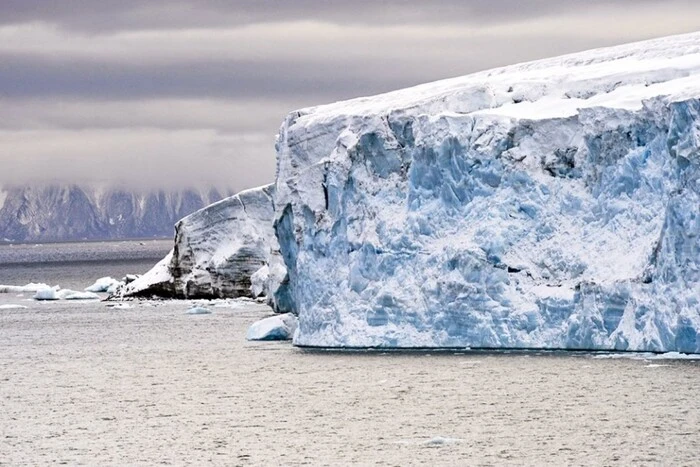Island from Franz Josef Land archipelago melted due to climate change.


Moon Island in the Arctic completely melted
Located in the Franz Josef Land archipelago in the Arctic, Moon Island, which was entirely made of ice, has ceased to exist. It is known that it appeared before 1995, having separated from Eva-Liv Island as a result of glacier melting. The reason for the disappearance of the icy Moon Island, according to scientists, is obvious: global warming, which occurs particularly intensively in the Arctic regions, leads to glacier melting and sea-level rise. Thus, Moon Island may not be the last victim of climate change.
“We monitored it from 2020-2022. As of August 19, 2015, its area was about 53 hectares, and by August 12, 2024, it was only 3 hectares. Now it has completely melted,” reports the Russian Geographical Society's website.
The group that observed the island believes that climate change was the reason for its disappearance. “The group proposed the following hypothesis: in Arctic regions, climate warming leads to glacier melting and sea-level rise. This causes shoreline erosion and, as a consequence, the disappearance of certain landforms,” says the RGO website.
Meanwhile, the report emphasizes that additional studies are required in the future to definitively confirm the disappearance of Moon Island and detect possible changes in the seabed relief.
The problem of disappearing islands has existed for a long Time. For example, since 1823, Vasilyevsky and Semyonovsky Islands were marked on the maps of Siberia in the Laptev Sea. However, 100 years later, they turned into underwater shoals and virtually ceased to exist.
Sharp rise in temperatures threatens lakes worldwide
Recall that a new study has shown that lakes worldwide will face a sharp rise in temperatures by 2100 due to anthropogenic climate change. This warming will be unprecedented and will affect both surface and deep layers of lakes, endangering the existence of many species. Scientists used a climate model and lake temperature data to simulate lake system dynamics and thermodynamics. The results showed that warming would be much stronger than ever before.
Read also
- Ukrainians' parcels can be confiscated: how to avoid losing your desired goods
- The Head of the UOC MP Onufriy received an official document from Russia confirming his Russian passport
- In Europe, women have started to be mobilized due to the Russian threat
- A military helicopter crashed in Somalia, five dead
- Pope Leo XIV and the Bishops of the UGCC prayed together for Ukraine
- Hellish heat in the EU. The air conditioning system in the European Parliament is broken










